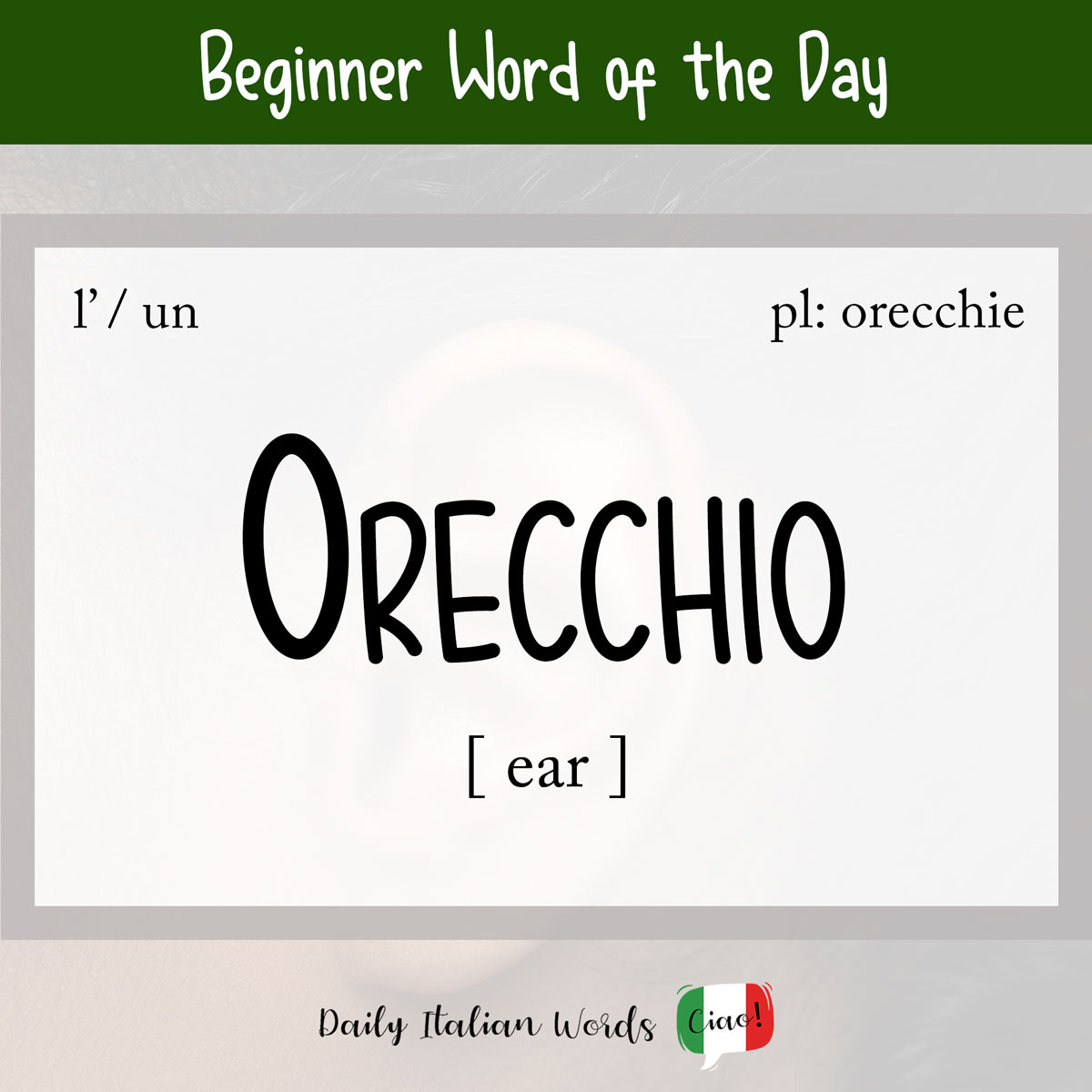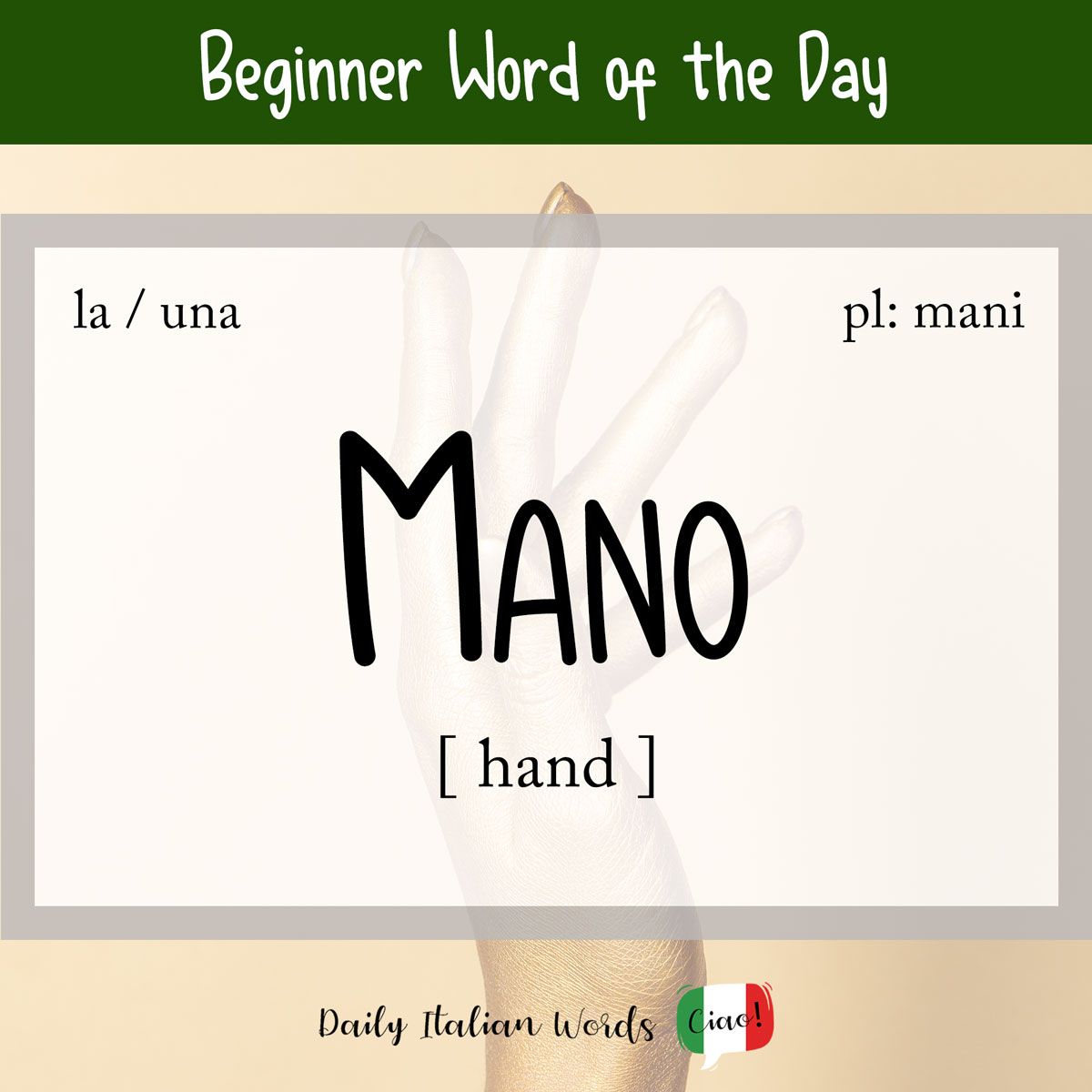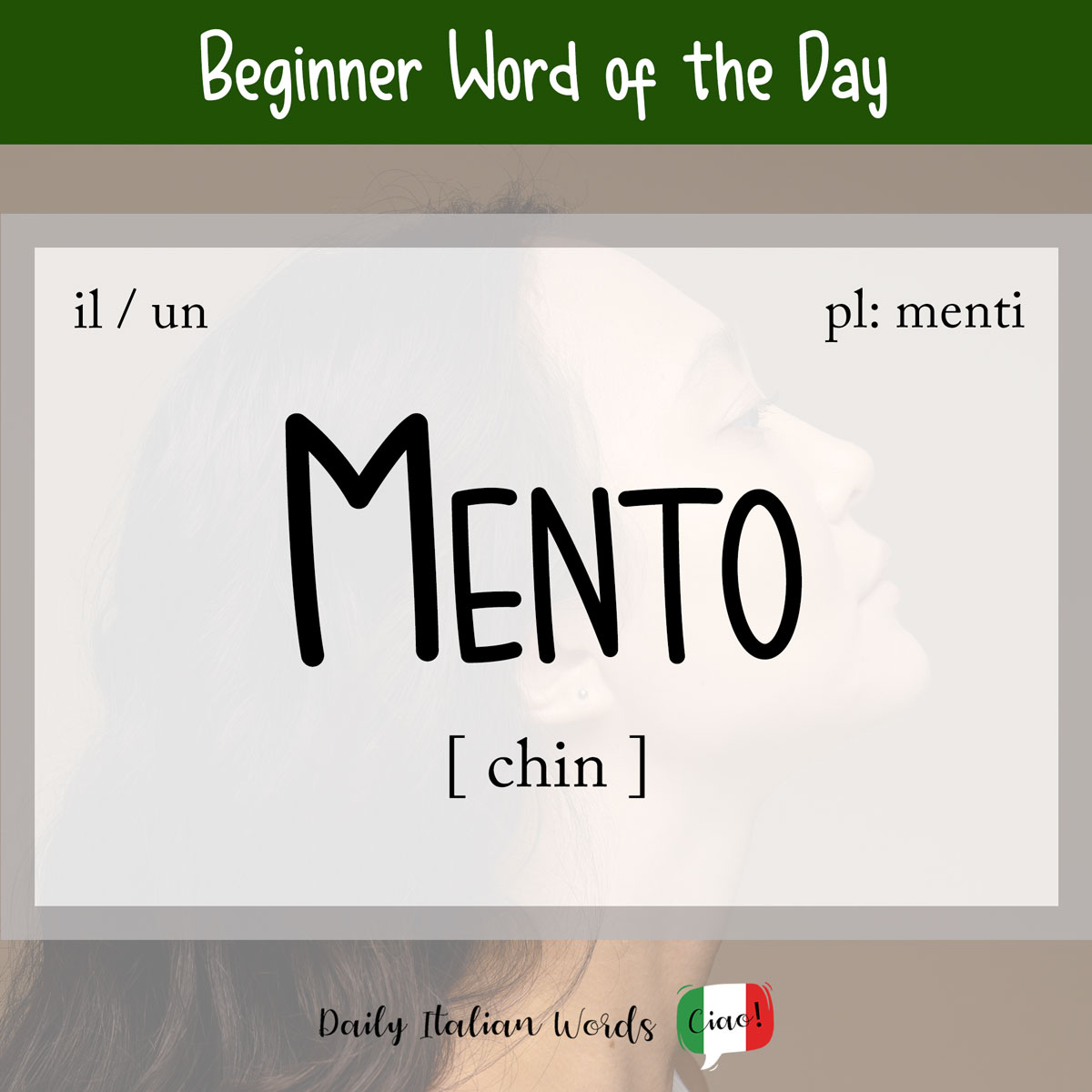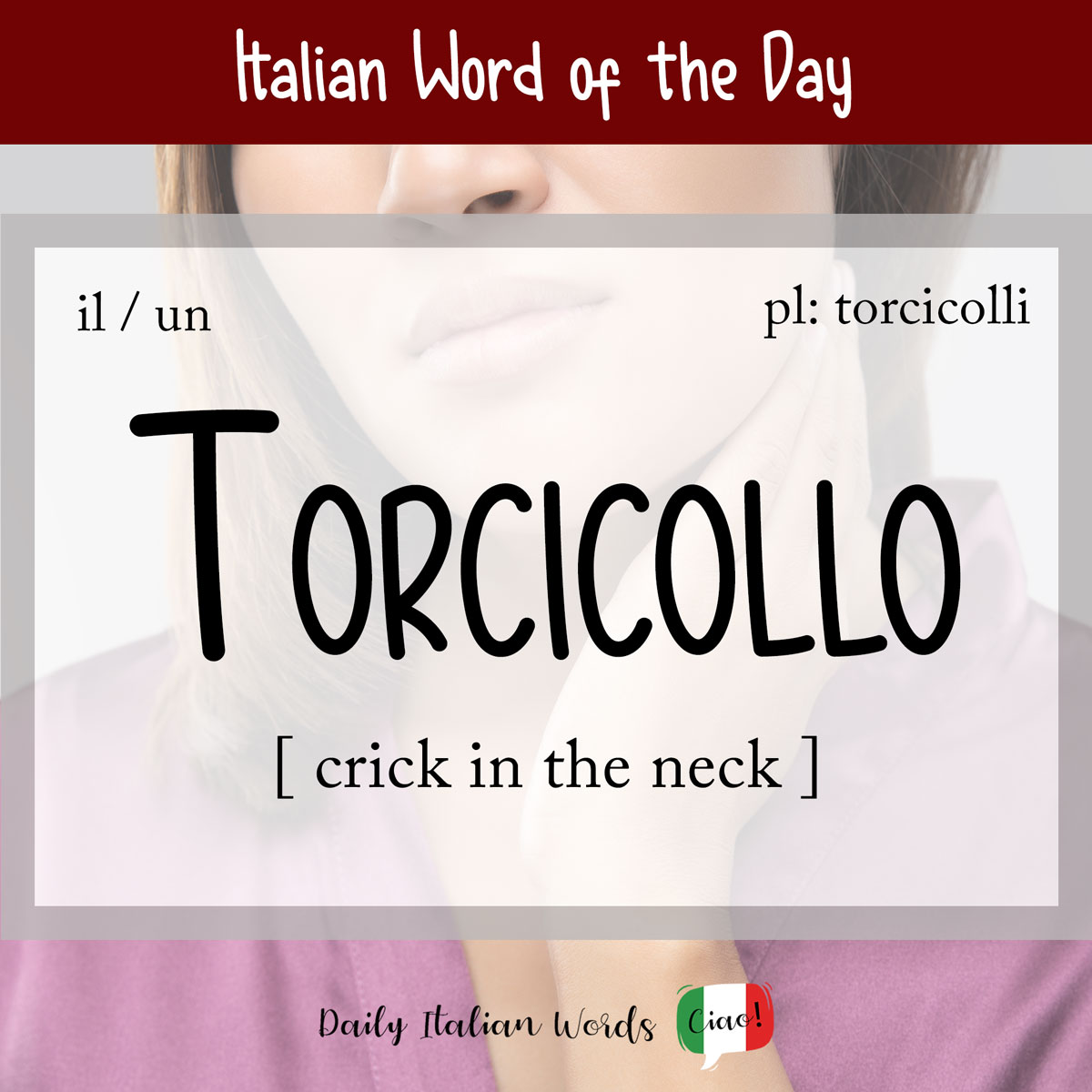Italian Word of the Day: Unghia (fingernail / toenail)
The word for a nail, as in the covering on the upper surface of the tip of the finger and toe in primates, is unghia in Italian. If you want to specify which part of the body you are referring to, you can use the terms le unghie delle mani (lit. the nails of the …






